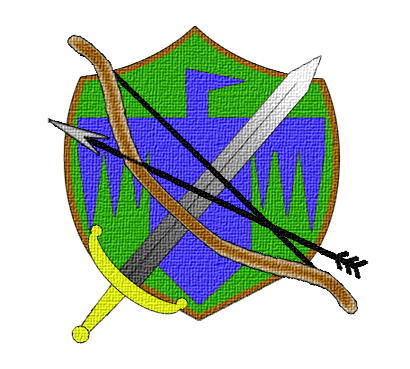The stories contained in the "Eldritch" category are written in the style of Howard Phillips Lovecraft, a science fiction author in the early 20th century.
Some of the science fiction written in this time is pretty different from the majority of science fiction today. As I understand it, there was the "Buck Rogers" style of science fiction that's more familiar to modern audiences (but really campy by today's standards), and there was the far darker, more unsettling, and far more alien style that was rooted in Edgar Allen Poe, who influenced H.P. Lovecraft. Somehow or another, the Buck Rogers style become more prominent in television and movies, especially in the 60s with Doctor Who and Star Trek. (But, I'm not an expert. This is just the impression that I get from what I've seen.)
Lovecraftian fiction tends to focus on things that are disturbing (fair warning), and tend to blend science fiction, fantasy, and horror.
It's the eldritch, though, that always caught my attention. I never really cared much for the horror and, personally, never found any of Lovecraft's work to be frightening in the least. They are always, however, fascinating.
The word "eldritch" is an old word for "alien" or "otherworldly." Lovecraft imagined beings foreign to Earth as entities that are almost entirely other and occult rituals as forgotten mechanisms to communicate with alien deities from the distant past. His greatest strength was venturing into that which cannot be either correctly or completely perceived or understood by human beings. As such, it is essentially impossible to faithfully translate Lovecraftian stories into movies or television shows. Being a mathematics student, Lovecraft grabbed my attention the moment I read his description of architecture as "non-Euclidean" in The Call of Cthulhu.
When writing stories involving the paranormal, I don't really attempt to make them "scary." I focus instead on dealing with otherness and darkness. That said, whether chilling or not, the impact that the unknowable has on the predictable world, by its very nature, is disconcerting.
Lovecraft's work is entirely within the public domain and can be read for free online. I would suggest reading The Call of Cthulhu before any of my works because the first story builds directly off of it, but it's not necessary.
I also compiled the stories that were found in The Outsider and Others, a collection of Lovecraft stories that's long been out of print. (There are plenty of other Lovecraft collections in print, but this one is referenced by name by many authors.) If you're interested, the pdf file can be found here, and the ePub file can be found here.

